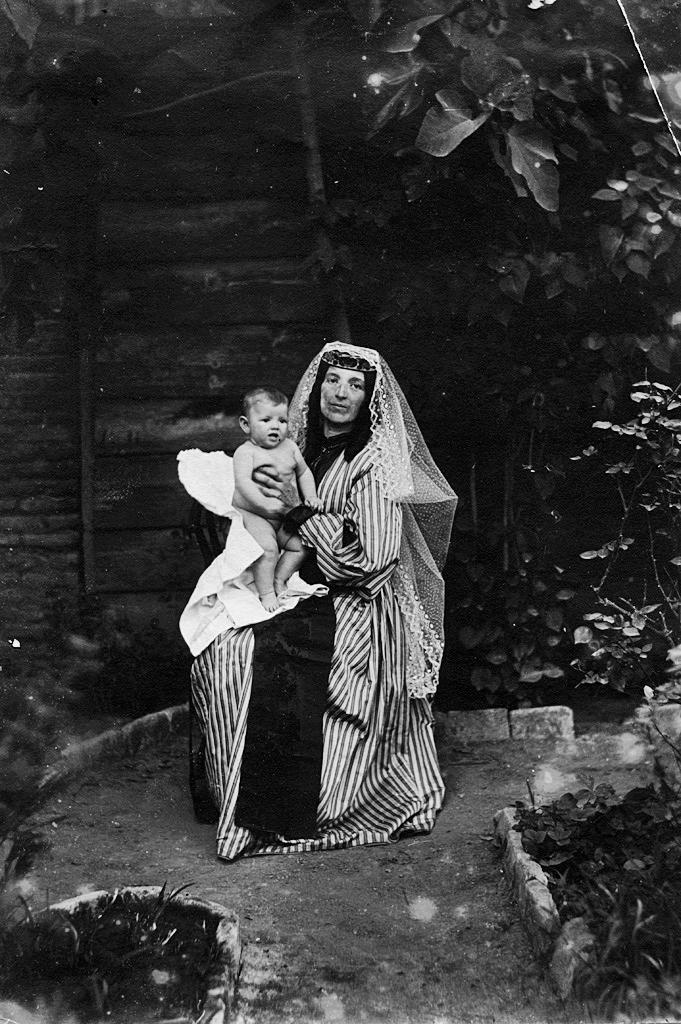
Figure 1.--This is a portrait of a Jewish mother and her baby was taken in Tiblisi (1896). |

|
The Jewish population is an especially interesting ethnic and religious minority. Jews in Georgia based on both oral traditions as well as actual written records dates millenia (around 500 BC). Despite becoming integrated in Georgian society and the pasage of millenia Georgian Jews maintained a degree of ethnic sepasration. They came to see themselves as direct descendants of the fabeled twelve tribes of Israel who were forcibly settled in Midia by the expanding Assyrian Empire. It was an early exmple of the settlement policy adopted by many major imperial powers. Georgia this becanme one of the earliest points of the Jewish disapora. Georgia was a rare exeption to the vicious abntisemitism prevalent in medieval Christendom. They would be joined later by an influx of Ashkenazi Jews who arrived after the Tsarist annexation of Georgia (1801-04). Tsarist control also introduced severe anti-Semitism. Georgian Jews were a rare exception of the European Jewish population that survived the Holocaust because the Red Army Army stopped NAZI forces seeking oil as they advanced into the Caucasus (1942). Most Georgina Jews would, however, migrate to Israel after the Six Days War. The success of the Israekis reoported by Soviet media ignited the interest in Judaism among Soviet Jews, including Georgin Jews. The work of the Refusniks and American economic pressure convinced the Soviets to allow Jewish emigration (1970s).
The Jewish population is an especially interesting ethnic and religious minority. Jews in Georgia based on both oral traditions as well as actual written records dates millenia (8th century BC). The Assyrian essentially deppulated the northern kingdom of Israel. Georgian Jews came to see themselves as direct descendants of the fabeled twelve tribes of Israel who were forcibly settled in Midia by the expanding Assyrian Empire. This comes from Georgian annals because the Bible loses track of the Jews ressettled by the Assyrians, but not by the Nabylonian captivity. This was an early exmple of the settlement policy adopted by many major imperial powers. A policy wudely used by Stalin. Georgia thus becanme one of the earliest points of the Jewish disapora. Subsequently, Babylonian King Navukhodnosorom adter seizing Jerusakem (586 BC) resettled more Jews, this time from the southern kingdom of Judea. Some of those Jews were settled in Kartli (eastern Georgia). These Jews did not retuen after Cyrus the Great conquered Babyln and allowed Jews there to return to Holy Land (539 BC). Georgia was a rare exeption to the vicious anti-semitism prevalent in medieval Christendom.
Georgian Jews did not expoerience ethnic or religious persecution. The Georgian kings respected their learming and rather like the Ottomans, entrusted them with important diplomatic posts and advisory positions. The ancient Jewish population would be joined later by an influx of Ashkenazi Jews who arrived after the Tsarist annexation of Georgia (1801-04). Tsarist ci=ontrolmalso introduced severe ati-Semitism. Georgian Jews were a rare European Jewish population that survived the Holocaust because the Red Army Army stopped NAZI forces seeking oil as they advanced into the Caucasus (1942). Most Georgina Jews would, however, migrate to Israel after the Six Days War.
Georgian Jews tended to live together in a village, often called a quarter. Here places of of worship and other centers of social and cultural life were opened. There were schools teaching literacy at time of general iliteracy. Jews as in most countries continued to give more attention to literacy and learming than the wider populations in which they lived. As a result, there were notable Jewish scribes, translators, and theologians. Hebrew disappeared except as a religious language.
Despite the loss of Hebrew, Jew managed ton reserve ther rekligion and cultural life. Thus for two millenni, a stable way of life maintaining not only the religious traditions, but other cultural attributes such as names and family structure, with some degree of Gorgian infkluence.
Despite becoming integrated in Georgian society and the pasage of millenia Georgian Jews maintained a degree of ethnic sepasration. We use the term integration rather than assimilation. Jewish culture despite some inter-marriage and substantial integration has preserveds its distinctive character. Aubstantial number of Jews are prominant scholars, writers, artists, financiers, doctors, sportsmen, and public life.—are active participants in Georgian life.
Georgian Jews were a rare European Jewish population that survived the Holocaust because the Red Army Army stopped NAZI forces seeking oil as they advanced into the Caucasus (1942). Most Georgina Jews would, however, migrate to Israel after the Six Days War. The success of the Israekis reoported by Soviet media ignited the interest in Judaism among Soviet Jews, including Georgin Jews. The work of the Refusniks and American economic pressure convinced the Soviets to allow Jewish emigration (1970s). The jewish population was 55,400 Jews (1970). About half emograted during the 1970s. The Jewish popukation was only 28,000 (1979). Today only a handful of Jews continue to live in Georgia.
.
Navigate the Boys' Historical Clothing Web Site:
[Introduction]
[Activities]
[Biographies]
[Chronology]
[Clothing styles]
[Countries]
[Topics]
[Bibliographies]
[Contributions]
[FAQs]
[Glossaries]
[Images]
[Links]
[Registration]
[Tools]
[Boys' Clothing Home]
Navigate the Boys' Historical Clothing national pages:
[Return to the Main Georgian page]
[Return to the Main Georgiasn history page]
[Return to the Jewish F-L Diaspora page]
[Armenia]
[Belgium]
[Bulgaria]
[England]
[France]
[Germany]
[Ireland]
[Italy]
[Japan]
[Korea]
[Mexico]
[Russia]
[Scotland]
[Spain]
[United States]
